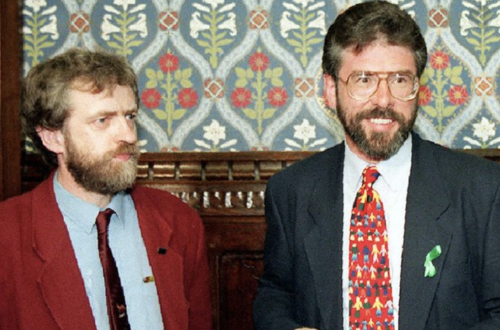Writing in Left Foot Forward, Charlotte Rachael Proudman draws a distinction between ‘equalists’ and ‘feminists’ – a distinction which might be disputed by those who identify as ‘equality feminists’. She thinks women should seek to change the world of work rather than conform to the ‘male status quo’.
I am a feminist and I do not strive for equality. I support liberation. The defenders of equality espouse moderate feminist principles: equal pay for equal work, equal opportunity with no special considerations i.e. positive discrimination, failure is down to the individual, and above all, women must embrace hierarchal work structures where the job always comes first. Equality takes the male status quo as the standard to which women aspire.
Proudman campaigns on some vital issues, FGM and forced marriage, but her binary vision – feminists versus equalists – seems a bit distorted. Rather than conforming to a ‘masculine’ workplace model, both equality feminists and men’s rights activists are inclined to support enhanced paternity leave rights. Proudman’s alarming description of male working environments – ‘a repugnant world’ – lacks nuance. For example she gloomily notes:
The attitude of the legal profession to equality is best shown by the number of women Attorney Generals over the years: one women in contrast to 202 men.
As the office stretches right back to the thirteenth century, this doesn’t seem the best statistic to use in order to demonstrate an ongoing problem. Here’s an alternative perspective on ‘the attitude of the legal profession to equality.’ Of the 108 High Court Judges, 21 are women. Of the 20 most recently appointed, 8 are women.
Positive discrimination is quite a complex topic, but I think Proudman is wrong to assume or suggest, as she does here, that it is the only way to achieve equality.
Here, a contradiction emerges, equalists support 50: 50 men and women in institutions but women will not be recruited in large numbers because ‘equality’ laws have made quotas illegal.
But according to this site, 61.5% of aspiring solicitors offered training contracts in 2013 were female.
Proudman makes sweeping generalisations about men:
It is impossible to alter male spheres, which are resistant to outside interference, because women are a minority that could be cut out at anytime, and men have vested interests in preserving the status quo.
and makes them seem hypocritical and inconsistent by treating them as a monolithic group:
Men plead both equality and difference when it is to their benefit. They argue equality when they want paternity leave, and difference when they want to be paid more prize money for sports.
In some sectors and regions young women’s earnings outstrip those of men. However, over the course of their careers women’s pay has a tendency to fall behind. This is largely due to childcare responsibilities. Of course sometimes there is active discrimination or prejudice, and more might be done to further improve opportunities and choices for both women and men juggling parenthood and work. Improvements would probably lessen the gender pay gap. But in part the pay gap can be explained by the fact that some women choose not to, in Proudman’s words, ’embrace hierarchal work structures where the job always comes first’, and instead put life/work balance before career ambitions.


